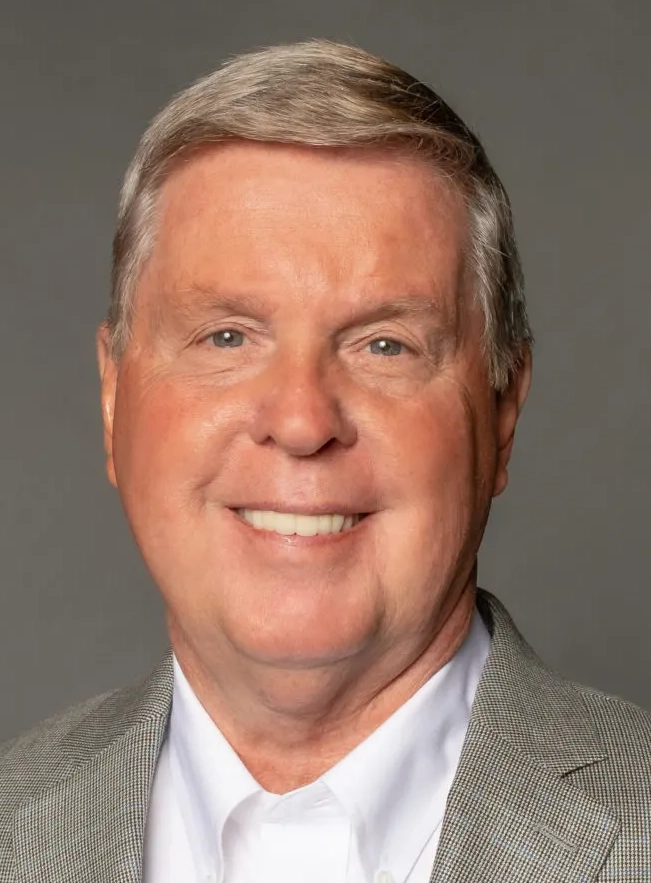As Pastor Jim Cymbala sat looking through the windows of his condo in Florida that day in March 2020, he knew the world never would be the same.
“I went down on March 8, 2020, to get away and planned for four or five days of rest in Florida,” he explained. “We rent an apartment a block and a half from the church here in downtown Brooklyn. My parents have a summer getaway place. As soon as we got there, the next day, they called us from Brooklyn and said, ‘Don’t get on a plane. Don’t go anywhere. Churches are closed down. Offices are closed down. Schools, banks … everything’s closed down.’”
His story is one most Americans could tell just as easily of their hometowns: “COVID knocked New York City for a loop. I’m born and raised here in Brooklyn, and I missed Brooklyn, but here I was in Florida for 16 months.”

Jim Cymbala
Cymbla is an author and pastor of Brooklyn Tabernacle Church, a multicultural, multiethnic church. But on that day in March, he began to understand what every pastor in America came to realize: He and his congregation would not be meeting in person for a while.
Yet during that 16-month stay, God began to do work in him, Cymbala said.
“While I was in Florida, I was meeting with pastors almost weekly when they learned Carol and I were in their area. Different denominations were bringing over five or more people, almost weekly to have coffee and just talk and pray. We started visiting some churches, then later to speak at some.
“I really got a fresh, new look at the church scene and had pastors opening up to me, telling me their sentiments, their discouragements, their hopes, their dreams. And it just hit me so deep in the heart, and then there was the killing of George Floyd, and the politicization of everything. I mean, you can’t order bacon and eggs in the morning without starting an argument.
“I just was like, ‘God, what is going on?’ And I felt the Lord speak to me and say, ‘What are you doing to help?’ I’ve made so many mistakes, learned so many things along the way with decades of ministry here in downtown Brooklyn. So as I prayed, that’s when I got the burden to write Fan the Flame to help leaders and pastors get back to making Jesus the first thing”.
Fan the Flame is Cymbala’s latest book. He said his desire in writing it was to help pastors and leaders understand that if Jesus is our first love, we have models to follow, like Paul, who was willing to give everything for Jesus.
“It’s like him taking a selfie of what his ministry was when he spent three years in Ephesus.”
“I was waiting on the Lord and praying and going deep into my heart and into hopefully the depths of God and his Word, and Acts 20 came before me, which is Paul’s farewell address to the Ephesian elders who, by the Holy Spirit, he knew he would never see again. He gives this talk there in Acts 20 to them. And it’s like him taking a selfie of what his ministry was when he spent three years in Ephesus. That was the longest span of time we’re aware of him staying in one place, and he’s reminding these leaders to ‘remember what I did, how I lived, what I counted important while I was with you’. So it started to speak to me almost phrase by phrase of Paul’s concept of a New Testament ministry.”
He continued: “And the Lord has put Paul as our model minister. We know more about him than we do Peter, James and John. Although Paul wasn’t one of the original 12, we know his trials and tribulations and the extent of his missionary work from the book of Acts. So here he is saying, ‘I’m defending myself, but also challenging you’.”
 Cymbala’s hope is that throughout his book he, too, will challenge readers.
Cymbala’s hope is that throughout his book he, too, will challenge readers.
He and his wife, Carol, who leads their church’s Grammy Award-winning choir, have definitely lived a life with challenges.
“Being a pastor or church leader is a sacred calling,” he said. “No committee makes somebody a minister, and no denomination can make someone a minister. They can just confirm the calling of God, which Paul always points out in his letters. So, we have to take our calling very seriously because, at the end of the day, we’re gonna stand before the Lord, not a denominational board.”
If church leaders are putting God first and serve those around them, they will be able to fan the flame and ignite their calling from God, he said.
“The church growth machine is really the worst culprit to me because the goal is not to see people saved, it’s to get them in a seat the next week.”
“The church growth machine is really the worst culprit to me because the goal is not to see people saved, it’s to get them in a seat the next week. … Nobody in the history of Christianity had (this) as their main goal. And this has been written about for the last 20, 30 years and accepted by everyone, especially young ministers, that it’s about lights, skinny jeans and a fog machine. That the lights, the music, the vibe, the length of the service, the pep talk of a sermon, that it hits the first-time visitor so they’re coming back next week. Are they saved? Did they meet Christ? No, don’t go into that. Just get ’em back next week. So, in my opinion, what we’ve produced now is an ‘un-Christianized Christian Church’.”
Churches and their leaders have gone wrong by depending on themselves and not the power of Jesus, he said.
“I didn’t go to seminary or Bible college, and my wife’s won six Grammy Awards, but she can’t read or write music and has never trained. So we’re the foolish things that, you know, Corinthians talks about. My prayer is that God will use our story to help leaders understands that he wants to use them.”
Maina Mwaura is a freelance writer who lives in Atlanta.


